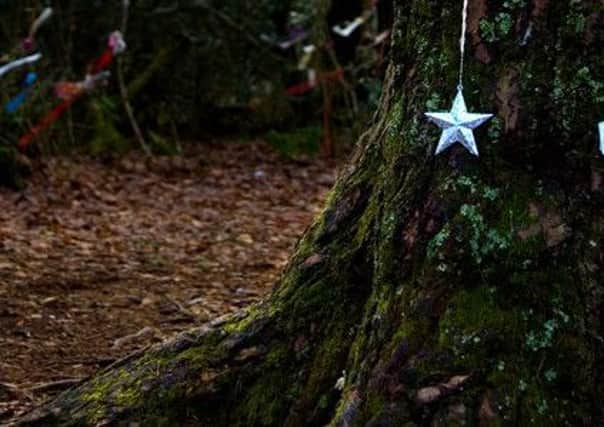The myths and traditions of Scotland's green 'men of peace'


Always dressed in green, the fairy men and women were said to live underground in a type of “shadowy happiness” with a love of food, wine and music.
While not overly malevolent, tradition dictates they have a peevish envy of the human race and would attend weddings and funerals to plunder the feast for provisions before returning to their subterranean hollows to enjoy the spoils of their mission.
Advertisement
Hide AdAdvertisement
Hide AdTheir powers were said to be particularly potent on a Friday.
“During the night, they celebrate their festivities by the light of the moon, and dance to notes of the softest music,” according to a record of the traditions of the Men of Peace in Browne’s 1854 History of the Highlands.
“Tradition reports that they have often allured some of the human races into their subterraneous retreats, consisting of gorgeous apartments and they have been regaled with the most sumptuous banquets and delicious wines.
Mortals are said to revoke the company of fellow men should they join the Daoine Shi’ in their pleasures.
Advertisement
Hide AdAdvertisement
Hide AdAccounts, however, suggest mortals can bargain their way out of life of the fairy men, known individually as a Shi’ich.
Dr Patrick Grahame, in Sketches of Perthshire, published an account surrounding the death of Rev Robert Kirk, the first translator of the Psalms into Gaelic verse, who died while minister of Aberfolye in 1688 aged just 42.
“He was walking, it is said, one evening in his nightgown, upon the little eminence to the west of the manse.
“He feel down dead as was believed; but this was not his fate.”
Advertisement
Hide AdAdvertisement
Hide AdDr Grahame recorded that, according to tradition, the minister had “visited” a friend following his death to tell him he had been “carried to Fairly-land” and to issue strict instructions to insure his return to human society.
The minister instructed that his cousin -Laird Graham of Duchray - was to throw a knife over his head after he “appeared” at the imminent baptism of his child.
One the weapon was thrown, the minster - who threatened to haunt his friend if he did not pass on the message - would be free to return to the company of mortals.
In his account, Dr Grahame noted: “The day of the baptism arrived, They were seated at a table. Mr Kirk entered, but the laird of Duchray, by some unaccountable fatality, neglected to perform the prescribed ceremony.
Advertisement
Hide AdAdvertisement
Hide Ad“Mr Kirk retired by another door, and was seen no more. It is firmly believed that he is, at this day, in Fairly-land.”
In tradition his spirit is said to be imprisoned in a pine on Doon Hill, which is referred to locally as Fairy Hill.
The pine, called the Minister’s Tree, which is still decorated to this day with pieces of material or “clooties” tied to its branches by those hoping to have their wishes granted.
New born children and women in childbirth were also thought to be vulnerable to the Shi’ichs with a threat that babies could be spirited away by the Shi’ichs. It is said that baptizing the baby immediately could reduce the threat.
Advertisement
Hide AdAdvertisement
Hide AdBrowne noted in 1854 that Highlanders would allude to the Shi’ichs with respect - although it was preferred not to speak of them at all.
So strong was the belief that the Shi’chs would steal and tamper with food from weddings and funerals, that some people could still recall those who would not touch the feast on offer.
Highlanders were particularly reluctant to speak about the Shi’ichs on a Friday, Browne said.
“Although believed to be always present, watching the doings of mortals, the Shi’chs are supposed to be more particular for in their attendance on Friday, on which day they are believed to possess very extensive influence.
Advertisement
Hide AdAdvertisement
Hide Ad“They are said to be especially jealous of what may be said concerning them, and if they are at all spoken of on that day, which is never done without great reluctance, the Highlanders uniformly style them the Dione matha, or good men.”
